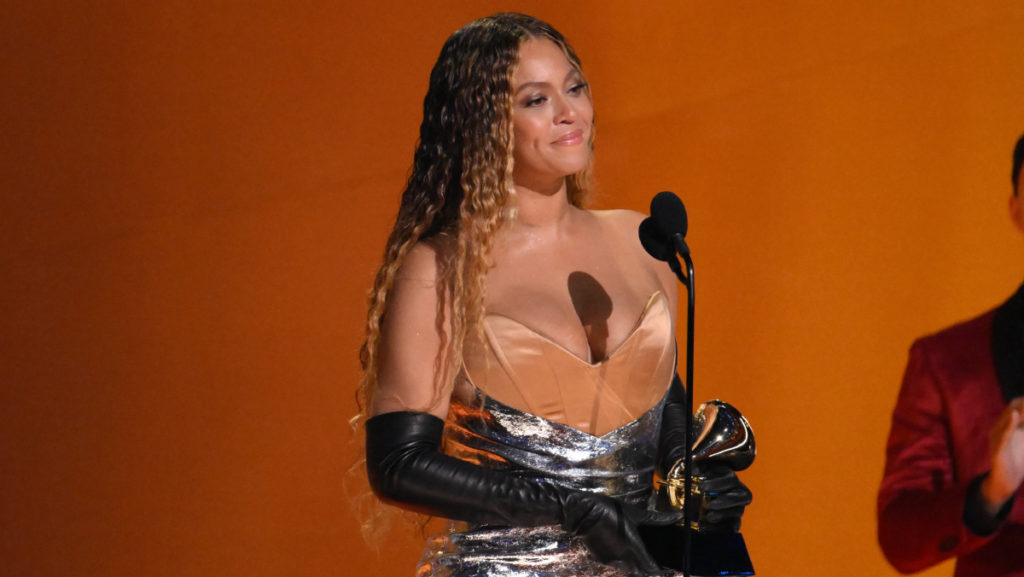Beyoncé made history Feb. 5 by becoming the most decorated artist by the Recording Academy with 32 wins after the 65th Annual Grammy Awards. However, many think that the momentous achievement is diluted by Beyoncé’s loss of Album of the Year for her dance album, “Renaissance.”
Beyoncé won four Grammys this year: Best R&B song for “Cuff It,” Best Dance/ Electronic Performance for “Break My Soul,” Best Traditional R&B Performance for “Plastic Off the Sofa” and Best Dance/Electronic Album for “Renaissance” (the last award noted in this list being Beyoncé’s record–breaking win).
Beyoncé was nominated in three of the “big four” major categories: Song, Record and Album of the year. She lost each of those nominations, but her Album of the Year loss to Harry Styles’ “Harry’s House” was especially criticized by the public. Many find that the Recording Academy’s treatment of Beyoncé is unfair, as she has been nominated in and subsequently lost in that category four times.
The album was well-received by the public and critics alike; “Renaissance” received a 90 on Pitchfork and was named the best album of 2022 on its “The 50 Best Albums of 2022” list and on Rolling Stone’s list, too. Many expected Beyoncé to take home the treasured award and were surprised when she did not.
Many public figures and fans alike had strong opinions on Beyoncé’s loss and the treatment that the Grammys give to Beyoncé overall, which some deem to be unfair.
“Ok so Beyoncé broke a record and made history last night,” actress, singer and songwriter Cynthia Erivo put on her Instagram story the day after the Grammys. “All that does not change the fact that she was not given all that she deserved [in my opinion] and its happened so often! Yesterday felt like a bait and switch.”
Many tweets and other articles tend to express similar dissatisfaction at Beyoncé’s loss. Many commentaries on Beyoncé’s award history also point out how, more often than not, Beyoncé only wins at the genre–specific Grammys and not the larger ones.
The Grammys should award artists based on the quality of their work, but when multiple artists have quality work and some have yet to be awarded after producing artistic genius again and again, then the reason why and the biases for or against certain people should be addressed.
Another aspect of this pattern of loss for Beyoncé is that all of the times in which she lost the Album of the Year award, she lost to a white artist. She lost her Album of the Year nominations in 2010, 2015, 2017 and 2023 for her project “I Am … Sasha Fierce” (2008), “Beyoncé” (2013), “Lemonade” (2016) and “Renaissance” (2023). She lost to Taylor Swift, Beck, Adele and Harry Styles respectively. Adele even acknowledged in a now-culturally-significant moment at the 59th Annual Grammy Awards that she thought that “Lemonade” deserved the award.
This pattern of Beyoncé losing these awards multiple times, despite her constant success and critical acclaim, showcases the unfairly high standard Black people, but especially Black women, are held to when being analyzed for and awarded or critiqued for their work.
“Losing album of the year does serve as a reminder that even when you’re at the absolute pinnacle of Black excellence, there is still that glass ceiling that remains firmly in place,” Leah Sinclair, writer for Stylist magazine, wrote, pointing out this ridiculous and impossible standard.
Some people also argued that Styles’ stating that “this doesn’t happen to people like me very often” in his acceptance speech for the award was tone deaf, ignorant and ill-conceived based on the fact that he is a white man; a demographic of people who often win this award and the other “big four” categories.
Beyoncé and other Black artists seemingly have to work triple (if not more) as hard to receive a fraction of the recognition for their art.
In an interview with Variety, five Grammy voters explained their justification for some of their voting decisions, including their reasoning on awards related to Beyoncé.
Two of the anonymous voters in particular gave reasons for not voting for Beyoncé that were very biased and go against the mission of the Grammys and the Recording Academy which is to, “to recognize excellence in the recording arts and sciences, cultivate the well-being of the music community, and ensure that music remains an indelible part of our culture.”
“With Beyoncé, the fact that every time she does something new, it’s a big event and everyone’s supposed to quake in their shoes,” one voter, who is described as a “music business veteran in his 70s,” said about the coveted Album of the Year prize. “It’s a little too portentous.”
“OK, Adele, Beyoncé — they always win; it’s the same people over and over again,” a voter who is noted as being a Grammy-winning producer-engineer who has been a voter for almost 20 years,” said about their thought process on voting for Record of the Year.
Personal emotions instead of an analytic review of art seems to have impacted the results of the Grammys.
Lacking variety in voters and allowing for internal biases and perceptions to seep into the Grammys voting process does not allow for fairness and authenticity in results. Also, with this mentality, losers and winners alike could potentially never be certain if their win or loss is fair. Furthermore, that ideal alongside the white privilege in the music industry will prevent Black artists (especially Black women) from being given the credit they deserve for their work.
The Grammys are meant to award artists who made music that impacted society and the culture, but the bias in the voting process and the voters, the disproportionate expectations placed on Black women in order for their art to be awarded and an industry that awards white men more often than not makes the Grammys’ decisions difficult to trust. Although it is without shock why Beyoncé has not won Album of the Year yet (based on the system awarding these artists), it does not mean that it is not unfortunate.






